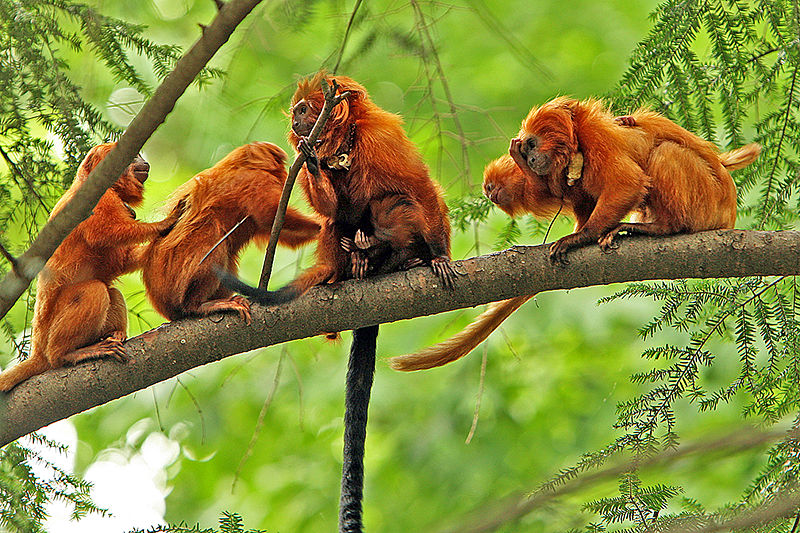Laugh, and the primate world laughs with you
Scientists have shown that the human ability to laugh isn't so human after all: our close primate cousins do it too. Writing in the journal Current Biology, Portsmouth University researcher Marina Davila Ross and her colleagues describe how they tickled the infants of  5 primate species - human, bonobos, chimps, gorillas and orangutans - and recorded the ensuing sounds. Using digital spectral analysis the team were able to assemble "vocal fingerprints" from each of their subjects' "laughs", which they compared.
5 primate species - human, bonobos, chimps, gorillas and orangutans - and recorded the ensuing sounds. Using digital spectral analysis the team were able to assemble "vocal fingerprints" from each of their subjects' "laughs", which they compared.
The team found that the complexity of the laughter, including the role that the vocal cords played in making the noise, the regularity and synchronisation of vocal sounds and changes in patterns of breathing, became more complicated the more closely related the animal species was to a human. In fact, a vocal evolutionary tree mapped directly onto a genetic family tree connecting each of the animals in the study.
"As the animals move up the evolutionary pecking order they embellish the laughing behaviour of the species slightly further down the tree," says Davila Ross.
This research shows that laughter is not a uniquely human preserve and that we have developed what has been handed to us through 16 million years of evolution, the time separating humans from the last common ancestor we shared with orangutans. However, what this study does not show is whether the sense of humour that usually stimulates a bout of human laughter is also shared with our hairy primate relatives.
"Chimps playing tug of war will laugh, although this is a direct stimulus involving one individual," says Davila Ross. "But I have never seen a chimp laugh at an event that befell another animal. It seems to be just humans that do that!"




Comments
Add a comment